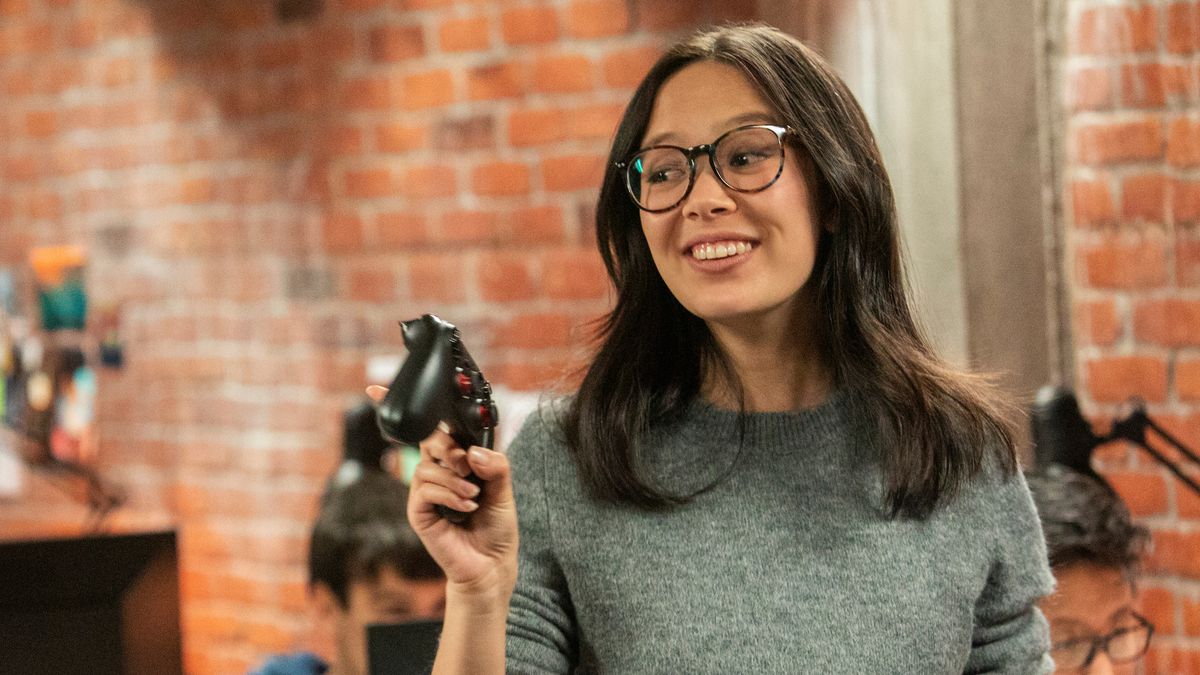The art of social-distance television has advanced quickly.
It’s been like watching evolution at hyper-speed. In just two months, the lowly water slug has transformed into a mighty cheetah.
OK, maybe just into a less-lowly land slug. But it’s been impressive, anyway.
The latest example – and the best so far – is an episode of “Mythic Quest: Raven’s Banquet,” arriving today (May 22) on Apple TV+.With some great moments for Charlotte Nicdao (shown here in an earlier episode) and Rob McElhenny (who wrote it), it’s witty, warm (briefly) and ends with a dandy visual stunt.
The evolution of at-home music came first. We quickly saw it go from primitive – Sam Smith simply staring into a phone – to elaborate, cutting between people in different homes and different continents.
But a scripted show, done from separate homes? That’s been more difficult.
The first at-home “Saturday Night Live” was interesting, but had way too many flailing attempts at one-person humor. The second (scheduled to rerun at 11:29 p.m. May 23 on NBC) was a big improvement. It had better one-person bits – Brad Pitt as Dr. Anthony Fauci, Kate McKinnon training her cats – plus some well-developed sketches. The third (the season-finale) was another improvement.
But those just involved small sketches. What about a full, scripted show?
“All Rise” came first, partly succeeding. The personal parts worked well; the actual court case and its preparation were lame.
A “Parks and Recreation” special followed, doing much better. It had the sort of humor – true to each character — that the show thrived on.
And now “Mythic Quest” takes it further.
The series involves a videogame company. Now we meet everyone after a long at-home stretch.
Poppy (Nicdao) is too hyper … Ian (McElhenney) is too mellow … C.W. (F. Murray Abraham),the token old guy, is still trying to figure out all this tech stuff. David (David Horsnby) is just trying to juggle fragile egos long enough to have a conference call.
Interestingly, we see some surprising layers to Poppy and Ian. We get that brief bit of warmth … and then the sight gag. It makes us feel better about the characters … and about the wobbly new art of social-distance TV.
